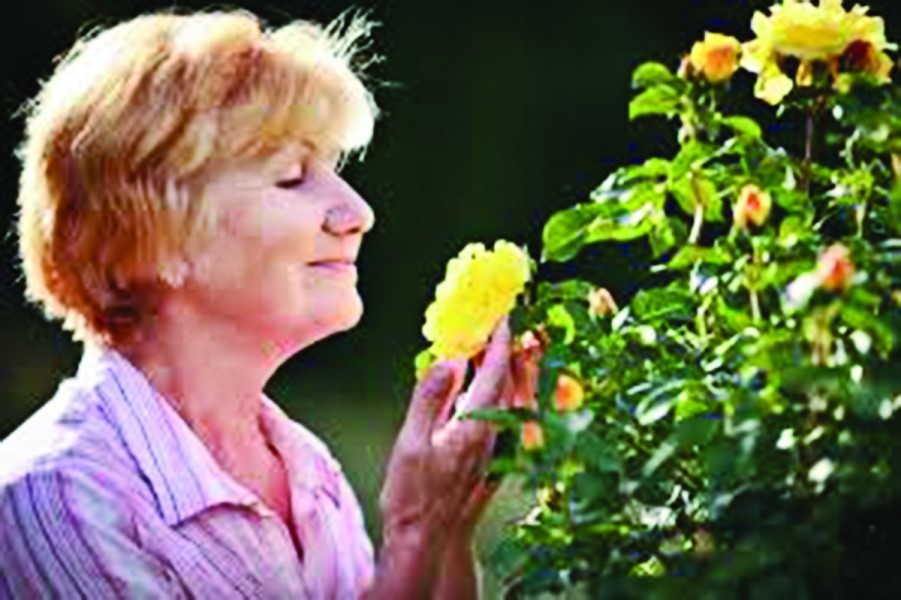The importance of daily mindfulness
As flowers are popping up everywhere into bursts of color, it seems a good time of year to remind ourselves to “stop and smell the roses.”
A quick Google search reveals that this phrase seems to have originated in the 1920s or ’30s with a golfer named Walter Hagan. His quote is, “Don’t hurry, don’t worry. You’re only here for a short visit. So be sure to stop and smell the flowers.”
“Stop and smell the roses” is a phrase we might hear as we make our way through our busy lives, rushing from one task to the next. But why does it really matter? To stop and smell the roses is a mindful act, and mindfulness can shift our relationship with struggles and stress.
Mindfulness is “awareness of present experience with acceptance,” according to the reference book “Mindfulness and Psychotherapy.” It is what occurs when we take a moment to stop – we bring ourselves out of our busy day or our busy mind into the current moment. It gives our minds a break, which can help emotions and thoughts settle and become clearer.
“Mindfulness is a skill that allows us to be less reactive to what is happening in the moment,” the book states.
“Smelling the roses” further allows awareness of the experience. Using our senses is a great way to become aware of our current experience. We spend much of our days in the past or the future through our thoughts, which help us make plans, do our jobs and function in our daily world. However, many struggles and stresses can come out of these thoughts, causing us to ruminate about the past or worry about the future. Our thoughts become a story in our minds of what has happened before, or what might happen, with little to no attention paid to what “is” in that moment.
According to “Mindfulness and Psychotherapy,” “Suffering seems to increase as we stray from the present moment.”
We can get out of our thoughts and into the present moment by seeing, hearing, smelling, tasting and feeling.
Acceptance of the “now” is a powerful component of mindfulness. It seems easy to accept the sweet smell of roses, but what if the roses cause us to sneeze or a thorn pricks us? It may be more difficult to accept an experience that is considered unpleasant. However, “rejecting or clinging to what is occurring in the moment” increases suffering, while openhearted acceptance increases our sense of well-being, the book states.
So I invite you this summer, and always, to “stop and smell the roses.” Find a time during your day to bring your attention to the present moment and to accept what “is.” You could listen to the sounds of a busy street for a moment, look at the color of the sky, feel the rough bark of a tree, taste the tang of an orange, smell a rose. A daily practice of mindfulness supports a sense of well-being as we relate to the challenges and stresses in our lives.
AMY SMALL, LICSW, is a clinical and Kesher social worker at Jewish Family Service.








